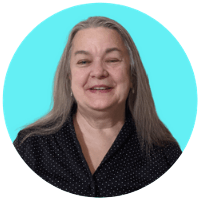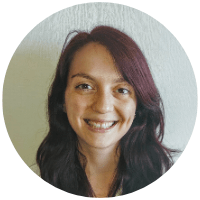Language Summit is a new and innovative virtual event bringing together members of the language learning and edtech industries from around the world. Not only is this the first conference of its kind, in-person or online, but it’s also one of the only conferences where ordinary teachers will be leading breakout sessions for their peers, other EFL teachers.
The event, hosted by the online English learning app Hallo, aims to address preconceived notions that education and technology exist as complementary yet separate industries. The virtual event, which will take place March 3-5, 2021, is intended to challenge “outdated frameworks, technologies, and pedagogies” to create space and give notoriety to less-recognized innovative solutions. With this foundation in mind, the creators of the summit have larger goals, one of them being to unite and empower the segmented industries that comprise edtech and language.
Bridge is a Platinum Sponsor of Language Summit, enlisting 11 speakers from its network to present across the breakout, panel, and keynote sessions. Bridge speakers are U.S.-based as well as global teachers, native and non-native speakers, whose topics have an abundance of range.
Prior to the conference, BridgeUniverse had the opportunity to talk with these speakers to find out their vision and goals for the ELT industry and to ask what they’ll be speaking about at Language Summit.
The Student Champions
Vesela Koeva
Originally from Bulgaria, Vesela Koeva started her career teaching English to children from 2 to 12-years-old in Spain. Her teaching journey landed her in Chile in 2019, where she is now a certified instructor at Bridge Languages. For the past year, she’s been focused on teaching Business English to corporate professionals and executives in South America.
In those two short years interacting with Business English students, Koeva has picked up on behaviors and trends among her classes, which has prompted her speaker session at Language Summit to address this very question: “What do Business English students expect from their teacher and class?”
“I thought this topic was important because there are not a lot of topics or research currently discussing this. What do business students want? We, as teachers, as institutions, always say what we want from them,” Koeva says.
Koeva has conducted many courses with Bridge to understand why students are trying to learn English, which helps not only the teacher/student relationship but the student’s growth in the language. Knowing exactly why an adult student wants to learn English, paired with both innovative and traditional methods, will allow the student to thrive in their learning. This is exactly what Koeva will address in her session.
“The textbooks are only the guidelines; everything else depends on the students,” Koeva says.
She gives a good example of a former student who struggled with her style of teaching. The student was ambitious, and frankly a little pushy. According to Koeva, the student had his own idea of how he wanted his classes to go, how he wanted to be taught, and what he wanted to learn. Finally, Koeva gave in, and then her student began excelling, and at a much more rapid pace than before.
At last, both the teacher’s and student’s expectations of one other were being met.
Even though Koeva’s breakout presentation at Language Summit is geared towards Business English, she says teachers teaching any level or topic of English will benefit from this session.
“If you remove the Business English title, you could apply this to any online teaching class.”

Terry McLean
Terry McLean is a master’s-level Bridge IDELTOnline course instructor as well as the head tutor of educators who work with students around the world in Bridge’s TEFL/TESOL courses. McLean is proud to have had the privilege to teach English to non-native English speakers, from beginners to advanced learners. McLean, with over 27 years of experience in education, will discuss “Persistence and Retention in the Online Classroom” at Language Summit.
“When I taught at the local community college, I was curious why the persistence rates were low. Students come to class full of enthusiasm, and they work diligently for a few weeks, but then something happens, and it becomes a barrier to their studies,” McLean says.
McLean’s curiosity led her to consider how she could support students’ completion of a class.
“They needed to know I was a resource. In the online class, this was more important than ever because online learning is solitary learning when it is asynchronous learning. They needed to see me often when they logged in.”

Laura Lewin
One of the keynote speakers, Laura Lewin, continues to expand the boundaries of her own career in ELT. She’s been an educator of English for over 30 years, and in that time has deservedly acquired the moniker internationally-known author, speaker, and consultant. As the founder of ABS International, a leading company in educational seminars and classes, Lewin is constantly booked as a consultant and speaker.
Lewin will be presenting at Language Summit on Leadership (a keynote session) and Formative Assessment (breakout). For her keynote presentation, Lewin wants attendees, whom she assumes will be mainly teachers, to be encouraged not just for themselves but for their students.
“I am really hoping for a bit of encouragement. Nowadays, people are so afraid… a bit of encouragement would be nice,” Lewin says.
Lewin, as well as many other teachers, can resonate with the student who is learning English and is intimidated by the difficulty. Lewin knows all too well how other students feel when contemplating quitting English altogether. As a teenage English student who could hardly “put two words together,” as she says, she would disengage from class, sometimes skipping her lessons back to back. According to Lewin, this is where leadership in teaching is needed: as a means of intervention, encouragement, and sponsorship.
On an unsuspecting day, Lewin’s English instructor at the time asked why she wasn’t in class. Lewin stumbled through an excuse, and then finally her teacher uttered three words: “I missed you.” From that point on, Lewin felt she was seen and also valued as an English-learning student. She has never missed an English class since then and now is giving four to five speaker presentations a day.
“The relationship is so important, bonding is so important. The teacher needs to bond with the student. Without bonding, there’s no learning,” Lewin says.
The Global/Non-Native Teacher Advocates
Leah Donelson
Leah Donelson is an online tutor at Bridge, and her breakout session at Language Summit is actually based on a course she developed and taught as part of a Bridge online class. Her session is entitled “Teaching English in English – what does it mean to empower teachers with confidence in their own speaking?” Her goal is to empower non-native English teachers to embrace their cultural backgrounds while teaching others who are also from a different culture.
Donelson doesn’t believe that the native-speaking teacher is necessarily the best person for the job. Many native speakers of any language have not studied the ins and out of correct grammar, sentence structure, conjugation, etc. But a non-native speaker of a second language has, and therein lies the benefit for a non-native who’s mastered the language to teach another non-native.
“We have to challenge this native speaker’s ideal because, it is true, there are more non-native English speakers than native-English speakers now in the world,” Donelson says. “Unfortunately, there are places that will only hire you for a job if you are a native-speaking teacher. It’s based on the old idea of what teaching and learning are supposed to look like.”

Jean-Marc Alberola
Jean-Marc Alberola, the founder and CEO of Bridge, agrees. In fact, Alberola will be addressing discrepancies with favoritism towards native speakerism, along with other misrepresented myths in English-learning, in his keynote address, “The Rise of the Global English Teacher.”
“Non-native English-speaking teachers haven’t really been recognized,” Alberola says. “The industry has been native-speakerism centric and we see this in programming, in books, and in what is considered to be the qualification of an English teacher. It’s really an unfair characterization that non-native speakers cannot deliver outstanding instruction.”
Alberola, as well as the Bridge organization as a whole, supports the notion of qualifying and accrediting non-native teachers to teach English. This stems from his extensive background in the ELT space.
Alberola is an experienced leader with 30 years of experience in international education. He has a deep understanding of language training, which has led him to grow several language companies, including Bridge, from scratch.
He sees several fragmented industries merging, besides education and edtech, to create the future of the ELT industry. Three such examples are the gig economy, online teaching, and marketplace industries. The collaboration between these three entities enables the convenience of a teacher and student to be matched together based on proximity, availability, and learning level.
The rise of the global teacher in both Alberola’s and Donelson’s view also allows for the English language to detach itself from conventional views that English is a Western language when it’s increasingly clear it’s becoming a global language.
On the global teacher, Donelson concludes, “We need to allow these teachers to be empowered. Allowing them to speak English in their way, with their accents, and being a part of their culture is just as beautiful as the native speaker.”
The “Teacherprenuers”

Dr. Sandra Quiñones-Hemphill
Dr. Sandra Quiñones-Hemphill, who will be presenting on “Empowering English learners for classroom success: Strategies for Academic Conversations and Classroom Collaboration,” was once an English as a Second Language (ESL) teacher working with school-aged children. Eventually, she took on other roles, such as an ESL curriculum developer, a consultant for school districts, and a supervisor for English Language Development. Today, she is an 8th grade English Language Development Specialist in Pennsylvania but is still involved with other related projects. She is also known on YouTube as “The Language Lady.”
“I have a passion for sharing tips,” Quiñones-Hemphill says. “My mission and vision is to always empower others to be their best selves in the classroom.”
The Language Lady channel has over 9,000 subscribers, with an Instagram and Facebook page to encompass the entire brand. Quiñones-Hemphill says her channel is for all students, and she enjoys sharing strategies and teaching methods with others. Quiñones-Hemphill shares similarities with other educators: She wears many hats and is involved in multiple projects.

Krzl Nuñes and Gabby Torregiani
Leah Donelson, as previously mentioned, is not only a Bridge course instructor but also a freelance course/curriculum developer and online English teacher. Krzl Nuñes, another Bridge-sponsored speaker, is an online English teacher for Bridge and a freelance blogger for the BridgeUniverse publication. Finally, Gabby Torregiani is a trainer, a teacher, a coach to other teachers, a teacher recruiter, an interpreter, an aspiring influencer on YouTube, an industry article writer, and the list goes on.
All of these speakers make up the teacher entrepreneurs, or rather the “teacherpreneurs,” of Language Summit.
Torregiani has been a part of Bridge since 2005 and is Head Trainer for some of their courses. Around the same time she started with Bridge, she launched her own small business platform, Torregiani Corporate Language Services, specializing in ESL solutions and services ranging from interpretation to dual-language learning for young children to customer service and everything in between.
“I always say the teacherpreneur is an educator who combines knowledge, skills, and attitude to create something new… to develop new services within the industry,” Torregiani says, a motto she stands by and wrote about in a previous article.
In the same article, Torregiani highlighted Krzl Nuñes, who has pivoted to online teaching due to the pandemic (along with many other teachers) but is planning to stay online even when in-person learning resumes. Her breakout session, “The power of teaching English online to fuel teacher mobility,” is the first she’ll present at an international conference. Location and time independence are key to online teaching, Nuñes says, essentially creating more flexibility for teachers to take on other projects to earn supplemental income or enhance their current career paths.
“By being location independent when you’re an online teacher, you have ‘teacher mobility’ and can maintain another lifestyle outside of online teaching,” she says.
Nuñes is using the advantage of online teaching to “build up” her work in Business English classes with Bridge in Chile. She is also a former journalist by trade and a regular contributor to BridgeUniverse.
The value of embracing the “teacherpreneur” spirit is that teachers have the flexibility to acquire new skills in different branches of their field, and when one branch becomes repetitive and stale, they can move on to the next inspiring project. Torreggiani has explored almost all avenues of the ELT industry, except one: digital/social media. Her newest venture is her YouTube channel. This is one venture that Torregiani will not seek to monetize and is operating solely for the benefit of others who seek her advice.
“I wanted my YouTube channel to inspire teachers, to share what I do, to share tips, but of course I also believe social media is helpful to stay connected and updated. This is the reason why I became more tech-friendly. I knew that I would reach out to more people with my channel.”
The Champions of Diversity
Venice Irving
Venice Irving is the CEO of Happy Teachers, a Jamaica-based online tutoring company established in 2009 and geared towards English-language learners. Irving’s Language Summit sessions will both focus on global diversity, one as a general session, “How Diversity Fuels Innovation,” and the other, a breakout, “What is English as a global language and how can teachers prepare students for the 21st-century language learning space through using it in the classroom.”
Happy Teachers is both woman-owned and Black-owned and based in the Caribbean. Happy Teachers is unique in the English language arena, and in Irving’s 20 years of experience, she is all too aware of this. Although the existence of Black-owned and operated language platforms is not completely absent, it remains a rarity.
“I’m a woman of color, and in the TESOL community, I find there is a lack of diversity when it comes to teachers, trainers, even owners of language schools,” Irving says.
Irving clarifies even further: There’s an abundance of teachers who come from all races, creeds, and cultural backgrounds, but this abundance dwindles as you look “further up the chain” of command. In both discussions Irving is participating in, she hopes to bring attention to this disparity and encourage people of color, especially women of color, to seek higher ranking positions in the industry. Another goal of hers is to break the myth that native English speakers speak the same way, carry the same accents, and even come from the same background.

Miles Iton and Donovan Brown
That native English speakers are diverse couldn’t be more true when positioning Irving and Miles Iton, the founder of Lo-Fi Language Learning, side by side. Both are native English speakers, yet one carries a pronounced Caribbean accent and the other an American accent. One understands the colloquialisms of Jamaica while the other understands American slang, and even that varies throughout subcultures and regions in the U.S.
This is one of the reasons Iton was motivated to found Lo-Fi. As a Black Fulbright fellow teaching in Taiwan, he wanted Taiwanese learners to understand English through the actual usage of the language in the arts by utilizing hip-hop. He merged his two passions, education and music (Iton is also a DJ and produces conceptual albums and music videos), to create Lo-Fi during the pandemic. At Langugae Summit, Iton and his colleague, Donovan Brown, will present their Lo-Fi platform, and their session is entitled “Lo-Fi Language Learning: The Dopest Descriptivist Approach.”
“I want educators to know that there’s a fine line between preparing your students for success in the real world and preparing your students to never change the world,” Iton says. “There’s a lot about how we talk about ‘acceptable English’ that comes from post-colonial influence on the education system.”
Lo-Fi’s current priority is to train teachers to embrace hip-hop in their classrooms with a mission to change the landscape of classroom English learning, “as well as to shake up the hip-hop scene.”
But Iton doesn’t just see the power of language learning through hip-hop as solely a benefit to the hip-hop community. It’s a strategic method to immerse students in English learning by studying the history of the Black-American adaptation of English, language composition, and wordplay that is embedded in the soul of the rhythm and poetry commonly known as rap.
What both Irving and Iton want learners to understand from a native-speaker perspective is that English can take on many identities and that it truly is a global language. It is not a language attached to the image of white, Western culture, nor should it stay this way.
“If we’re going to be honest about how we’re evolving, as a society or as English speakers, I think we need to adapt to how language is changing, and how much it’s changed,” Iton says.
Irving agrees and also stands firm on the notion that people from the African diaspora living in all parts of the globe have a place in the English-language community, and it should be recognized as commonplace, not questioned. In fact, that is one of the reasons why she is participating in Language Summit, to show the ELT community that there are Black leaders and innovators too.
“Our place is valid, and we don’t have to make excuses, and we don’t have to give reasons for our place,” Irving says. “And when I go to these conferences, I’m opening a window for people to see… to see us people that belong in the community.”









